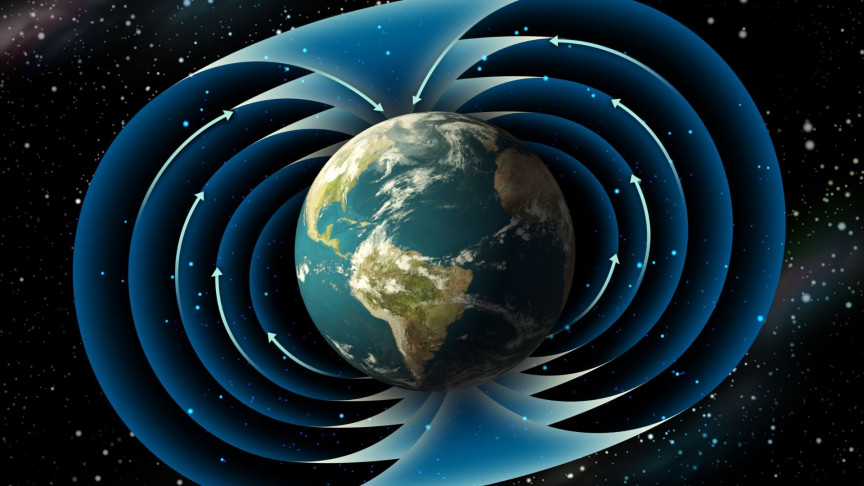
A new study is revealing that a reversal in the Earth's magnetic poles 42,000 to 41,000 years ago may have led to environmental crises that resulted in mass extinctions. The period is called the Laschamps excursion and the research used precise carbon dating obtained from ancient tree fossils to study its effects.
The team details how they created a precise radiocarbon record around the time of the "Laschamps geomagnetic reversal about 41,000 years ago from the rings of New Zealand swamp kauri trees."
"This record reveals a substantial increase in the carbon-14 content of the atmosphere culminating during the period of weakening magnetic field strength preceding the polarity switch." The team concluded that the "geomagnetic field minimum caused substantial changes in atmospheric ozone concentration that drove synchronous global climate and environmental" with their model investigating the consequences of this event.
The researchers also emphasized that it's the first study of its kind to determine a link between pole reversals and environmental changes. To conduct the study Cooper and his team used cross-sections from four ancient trees recovered from a swamp at Ngāwhā Springs in northern New Zealand and tested them for carbon-14.
The team then simulated how a changing magnetic field might affect atmospheric weather patterns. Their results indicated that the increase of charged particles entering the atmosphere would also result in a rise in the production of atmospheric hydrogen and nitrogen oxides.
These molecules would consume ozone, thwarting the stratospheric ozone from shielding Earth’s denizens from ultraviolet radiation. These changes would also disrupt sunlight from being absorbed at different layers in the atmosphere, leading to a large-scale cooling of the planet.
However, although the research is generally interesting and sound, the researchers rely a little too much on hypotheses. It's as if they are looking for anything that happened 42,000 years ago that could possibly be related to changing environmental circumstances.
In the end, what happened 42,000 years ago still remains unknown. But the work could inspire more research to examine the principles behind these mass extinctions. The study was published in the journal Science.
DISCLAIMER: This article was updated to contextualize the limitations of the research and its conclusions.
Article From & Read More ( A Flip of Earth's Magnetic Poles 42000 Years Ago May Have Led to Mass Extinctions - Interesting Engineering )https://ift.tt/3aHbWSS
Science
No comments:
Post a Comment